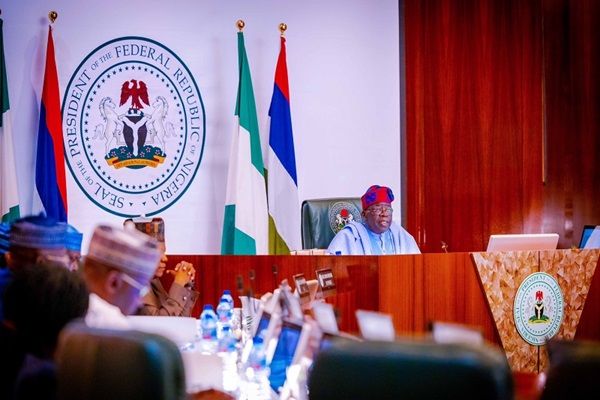President Bola Ahmed Tinubu has challenged universities in the country to review their curricula in such a way that would make graduates employable and enable them to create jobs to address graduates’ and youth unemployment.
Speaking at the 36th convocation ceremony of the Federal University of Technology, Akure (FUTA), Tinubu, who was represented by the Executive Secretary of the National University Commission (NUC), Prof Abdullahi Yusuf Ribadu, said the government alone cannot create jobs for the graduates being turned out every year.
Congratulating the graduands, Tinubu expressed concern over youth and graduate employment and directed the universities to ensure that their curricula were tailored to employability and self-employment. According to him, it was needful to pay close attention to the relevance of our curricula to employability and job creation, and emphasised that all hands must be on deck to ensure that FUTA graduates were not only self-reliant, but consistently so.
His words: “I must admit that while today’s occasion gives much joy, it is overwhelming to note the number of graduates that are to be added to the labour market.
It is therefore needful to pay close attention to the relevance of our curricula to employability and job creation, and emphasise that all hands must be on deck to ensure that FUTA graduates are not only self-reliant, but consistently so.
“While it is agreed that government alone cannot provide job opportunities directly for the teeming graduates of our Higher Educational Institutions, government will continue to create an enabling environment for investments and businesses to thrive.
This administration recognises the critical role of science, technology, and innovation in our national development. “We are therefore committed to policies that strengthen education, promote research funding, and foster collaborations between universities and industries.
We are also pursuing the digital economy agenda, renewable energy initiatives, and infrastructural development, all of which open new opportunities for your graduates to contribute meaningfully to national growth and development.”
Tinubu praised FUTA for its consistent record of excellence, describing the institution as a critical hub for technological innovation and human capital development. He commended the leadership of the Governing Council, management, and staff for sustaining high academic standards despite the nation’s socio-economic challenges.
He reiterated his administration’s commitment to strengthening Nigeria’s digital economy, renewable energy development, research funding, and industrial partnerships—sectors, he said, hold vast opportunities for FUTA graduates.
Tinubu also urged young graduates to explore the agricultural value chain, which he described as a goldmine capable of generating jobs and wealth. He added that sustainable funding of universities must now become a shared responsibility among government, alumni, and parents, in line with global best practices.
The President outlined ongoing reforms in the education sector, including the revitalisation blueprint for university education, increased interventions from TETFund, the Nigerian Education Loan Fund (NELFund), and the recently introduced Tertiary Institutions Staff Support Fund (TISSF) aimed at cushioning the hardships faced by university workers.
The Vice Chancellor said that 1,479 graduates of the university bagged second class upper, while 912 and 116 graduated with second class lower and third class respectively.
Also, Oladiji revealed that, apart from the 2,747 undergraduate students, who were awarded Bachelor’s degrees, 867 were awarded Postgraduate degrees, with a breakdown of 627 for MTECH, 86 for PGD, and 154 for PhD.















